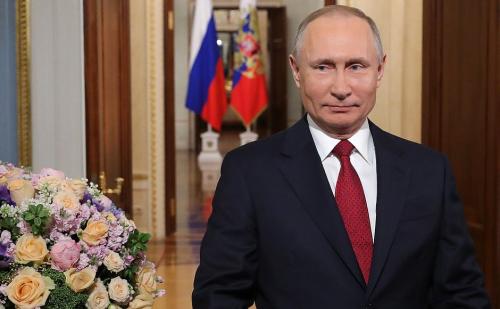Vladimir’s mischief
- Opinión

The United States oilmen are livid – they just learned that Russia will not cut production.
There is a typical Russian strategy behind the announcement that Russia refused the deal to cut output, proposed by the Saudis to OPEC. It happened during the Vienna summit a couple of weeks ago.
The meeting was to discuss a Saudi proposal to decrease oil supply to push prices up. Russia's refusal collapsed the Saudi proposal and it caused a 10% drop in the market price.
Some oil markets saw their biggest one-day drop since the period of the financial crisis.
Russia's bold move makes Europeans happy, but it leaves both Americans and former OPEC colleagues on edge.
According to the Russian Minister of energy, Alexander Novak, as a result of the Russian decision, after April 1, 2020, with the spring, prices will continue to fall.
Despite the fact that Russia and Saudi Arabia both depend on oil, Moscow has a diversified economy that leaves plenty of room for maneuver due to its vast gold reserves and to the strict budgetary policy that, due to US sanctions, Russia had to adopt in the recent years; the overall effect was to reduce Russia’s dependence on energy exports.
On the other hand, Saudi Arabia has a current budget deficit of more than $ 50 billion and has scarce funds abroad.
Although both countries can endure low oil prices for some time, Riyadh cannot afford such a situation for too long. Some analysts point out that it can only hold up for a year or two.
The Russian finance ministry said Russia can stay afloat for up to 10 years, even if oil prices remain between $ 25 and $ 30 a barrel.
"It seems like a death spiral downward to see who is gonna blink first," said Andrew Lipow, president of Oil Associates LLC, quoted by RT. "But a Brent price of 40 dollars a barrel means that Saudi Arabia burns through about 120 billion dollars a year. So I think they almost play a game of chicken between themselves and the rest of the oil market."
That staggering drop in profit at the Kremlin is interpreted as 120 billion fewer Saudi arms purchases from NATO countries.
What Mr. Lipow does not understand is that he is facing a masterful maneuver of Economic Diplomacy.
Remove US fracking from the oil market
The Russian move brought prices down to around US $ 40 a barrel, Putin thus collapses the US oil industry.
It is necessary to remember here that the United States was, until 1970, the main oil exporter. That year, the oil output of their exhausted wells was not even enough for their own consumption.
Then the U.S. became the world’s main importer. It was in 1971, at the time of the U. S. abandonment of the US dollar gold standard promised in Bretton Woods ($ 35 / oz). Afterward came the issuance of dollars without funds to pay the huge (150 billion) trade deficit. It was an OPEC decision that saved the USdollar: they decided to quote oil only in dollars.
In the late 1990s, a new oil extraction technique known as Fracking was developed. It allows residual gas and residual oil to be recovered from depleted oil wells. Fracking allowed the United States to export oil again. But fracked oil is much more expensive than conventionally obtained oil. Fracked oil needs high prices to recover investments; the high price need explains the aggressive foreign policy of the United States that is always looking for a pretext to impose obstacles and sanctions on oil-exporting countries in order to decrease the oil supply to the world market, in order to push prices to a level high enough to make fracked oil profitable.
The US does its best to make it difficult for competitors to trade their oil. Competitors such as: Iran, Iraq, Libya, Syria or Venezuela.
The United States does not bother Saudi Arabian oil production, because that country is the second largest investor in weapons in the arms trade. Saudis are the main client of the US industrial-military complex, which is who actually governs in Washington.
With such a smart strategic move in economic diplomacy, Putin will bankrupt the new US oil industry, applying only market rules; while at the same time putting a brake on Saudi purchases to the US military industry. Saudi Arabia has a huge Budget deficit of some 50 billion. An oil price of $30/bb means, according to Bloomberg a loss of 120 billion in revenue. A decline in Saudi revenue will also affect Riyadh's financing of the Islamic fanaticism that plagues Syria, Russia's ally in the Near East.
Russia imposes the competitive advantage of the greater resilience of its economy and the advantage that Mother Nature gave to that blessed country, of fresh oil fields that do not need Fracking.
In effect, Putin's move: enduring low prices in order to ruin the adversary, bears resemblance to the scorched earth strategy that General Kutuzov used against Napoleon.
Almeria 03/14/2020
Del mismo autor
- Bubbles, Dumping and Refugees 06/09/2021
- Burbujas, dumping y refugiados 06/09/2021
- Afghanistan for China 25/08/2021
- Afganistán para China 25/08/2021
- 1819 ideas for the XXI Century economy 05/08/2021
- The keys to Chinese successful economic growth 22/07/2021
- Las claves del crecimiento económico exitoso de China 22/07/2021
- Need for a New International Value benchmark 05/07/2021
- Nueva Referencia Internacional de Valor 30/06/2021
- Taiwan in the near future 17/06/2021
